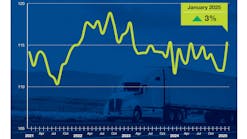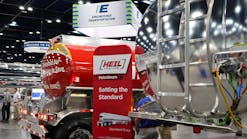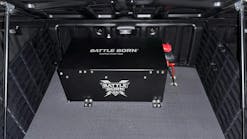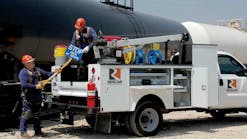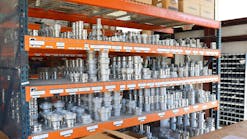LOUISVILLE—A federal committee and the public are looking critically at the fairness of lease-purchase agreements.
The Federal Motor Carrier Safety Administration held its fourth Truck Leasing Task Force meeting here at the Mid-America Trucking Show. The Task Force discussed solutions to exploitative lease-purchase agreements and listened to public testimonies.
“We regulate any aspects of the trucking industry, including drivers, but it is critical to us that we do what we can to help experienced drivers thrive in this industry,” said Brian Stansbury, FMCSA chief counsel and member of the Task Force. “Because the more experienced drivers we keep on the road, the safer the roads will be.”
Hosting both in-person and virtual attendants, the meeting ran from 10:00 a.m. to 3:00 p.m. It was the first time that all the Task Force’s members had met in person.
Truck leasing today
Lease-purchase agreements in trucking have a mixed reputation. Under a lease-purchase agreement, a driver can become an owner-operator by entering a lease contract with a carrier. The driver makes monthly payments to the carrier in order to drive the truck—and has to operate the truck according to the carrier’s terms—until the driver can finish the lease and own the equipment.
Lease purchasing can be an effective option to acquire equipment for the small businesses that make up most U.S. carriers. FleetOwner’s Trucking By the Numbers 2023 found that 95.8% of motor carriers operate fleets of 10 or fewer trucks. With limited capital, lease agreements can help these carriers cover the costs of operating equipment.
“Truck leasing is an environment that allows an independent contractor the opportunity to purchase equipment and get their business going,” David Heller, SVP of safety and government affairs for the Truckload Carriers Association, said in February.
However, lease-purchase agreements can also introduce a power imbalance. The carrier holds both the driver’s debt and the driver’s ability to earn money. Leaseholders’ terms can limit a lessee’s ability to operate their businesses and can demand drastic payments for repairs or maintenance.
“Done properly, truck leasing can open the door to prosperity,” said Stansbury. “It can give somebody the ability to start driving to earn a living, support their family, and start building their piece of the American dream. But we have seen too many examples where that is not the case, too—many examples where there is predatory behavior, confusing contracts, sometimes outright duplicitous behavior that can lead drivers underwater, in conditions where they are not able to keep their trucks up to a safe state.”
Often, a driver under a lease-purchase contract can only use repair facilities approved by the carrier—often the carrier’s repair facility. The carrier can come up with any price for the repairs and deduct its cost from the driver’s compensation. Drivers can receive a check for $0 or even a negative amount of money.
“Why can these drivers not lease trucks from traditional leasing companies?" Paul Cullen, attorney of Cullen Law Firm and member of the Task Force, asked. “The standards of those lending organizations don’t reach those individuals who are typically caught up in these truck leasing programs. So, how can carriers provide leases to drivers that traditional lending companies cannot? The reason is that they have control over those drivers. They control their work, their compensation.”
The result is a system that can exploit and discard drivers at a rapid rate. A driver signs a lease-purchase agreement, works for a few months until they cannot make enough money to cover the contract’s payments, and then exits the industry. The leaseholder can then re-lease the same vehicle with a new driver.
“I can count on one hand how many people that I know completed the lease and own that truck,” Steve Rush, chair of the Task Force and founder of Carbon Express, said. “[Drivers] love to do what they do, and people take advantage of that. It borders, in my opinion, on criminal.”
Read more at FleetOwner.com, a Bulk Transporter affiliate.


